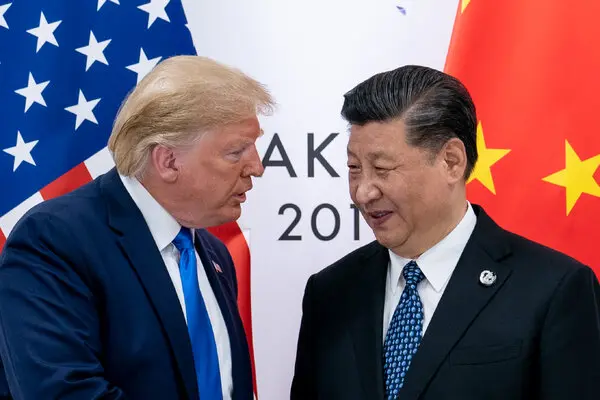Donald Trump’s Asia tour reshapes the global conversation on U.S.-China relations, trade, and diplomacy.Explore how his words redefine Asia’s political balance.

A Tour That Stirred the World
Donald Trump’s Asia tour wasn’t just another diplomatic journey — it was a statement. His words and actions across Asia once again brought attention to the fragile balance between the United States and China, two nations that shape the fate of global politics.
Trump arrived in Asia with a familiar message: America first, but this time, he also spoke of partnerships and “shared interests.” His confident tone and dramatic presence made headlines, as always, but behind the speeches was a deeper question — can the U.S. and China truly coexist in peace?
For readers who want to understand the roots of this complex rivalry, visit U.S.-China Tensions: What You Need to Know.
China – The Core of Every Conversation
Wherever Trump went — Japan, South Korea, the Philippines — one name kept echoing in conversations: China.
It was clear that his visit was centered on countering China’s influence in Asia while promoting stronger U.S. alliances.
During private meetings and public speeches, Trump emphasized fair trade, national security, and global stability. His message was clear — America wants cooperation, not exploitation. Yet, his tone carried a warning: the U.S. will not back down when its interests are threatened.
This reflected the ongoing tension that has defined global trade and diplomacy for years. You can explore these deep economic struggles at www.america112.com, where experts break down what this rivalry truly means for global markets.
The Shadow of the Trade War
Memories of the 2018 trade war still linger. Trump’s tour revived those memories when he spoke of “imbalances” and “unfair practices.”
He met Asian leaders with a firm handshake and an even firmer message — America is open for business but on its own terms.
For China, this trip was a reminder that the U.S. still sees it as a strategic rival. While both nations publicly talk about peace, trust remains the missing piece.
The ripple effects of this tension go far beyond trade. Farmers, manufacturers, and small business owners around the world feel the pressure when superpowers clash.
For a related global perspective, read Love for Peace, Not Power: U.S. Sanctions on Russia, which explores how international power struggles affect everyday lives.
Allies, Expectations, and the Asian Balance
Trump’s stops in Japan, South Korea, and the Philippines were strategic. He wanted to reassure allies that America still stands strong in Asia while warning China that its growing military presence won’t go unchallenged.
But behind the political showmanship, there were real emotions — uncertainty, fear, and hope.
Asian nations depend on trade with both the U.S. and China. They want peace, not rivalry. Leaders are walking a tightrope, trying not to anger either side.
One misstep could change the region’s future forever.
The Emotional Cost of Power
While political leaders talk about strategy, ordinary people carry the burden of their decisions.
Workers lose jobs when trade deals fall apart. Students struggle when visas tighten. Families worry when military drills near their borders increase.
Behind every political headline is a human story — a reminder that power without compassion hurts the innocent most.
As explored in U.S.-China Tensions: What You Need to Know, every shift in diplomacy affects real people — from factory workers in Beijing to tech entrepreneurs in California.
Trump’s Message to the World
Trump’s tour was filled with strong declarations. He spoke of protecting American workers, rebuilding alliances, and challenging nations that “take advantage” of U.S. generosity.
But what stood out most was his belief that America must lead.
His critics saw this as arrogance, while supporters viewed it as confidence. Whatever one’s opinion, there’s no denying Trump’s impact — he changed the tone of global diplomacy forever.
For deeper insight into this new political era, explore www.america112.com, which regularly covers power dynamics shaping our world.
Hope Beyond Politics
Despite the heated talks and cautious handshakes, there’s still a quiet hope for peace.
Many believe that the U.S. and China, despite their differences, must work together for the sake of global stability. The world doesn’t need another Cold War; it needs understanding and dialogue.
As one observer put it, “Nations rise and fall, but peace is the only victory worth fighting for.”
That’s a truth that outlives politics, parties, and power struggles.
Final Thoughts — The World Watches and Waits
Donald Trump’s Asia tour may have ended, but its impact is still unfolding.
Will this trip bring new beginnings or deeper divisions? Only time will tell. What’s certain is that Asia has once again become the stage for a global drama that affects us all.
Stay informed about how these relationships evolve by visiting Recital Blog, where stories go beyond headlines to explore the heart of world affairs — the human side.

